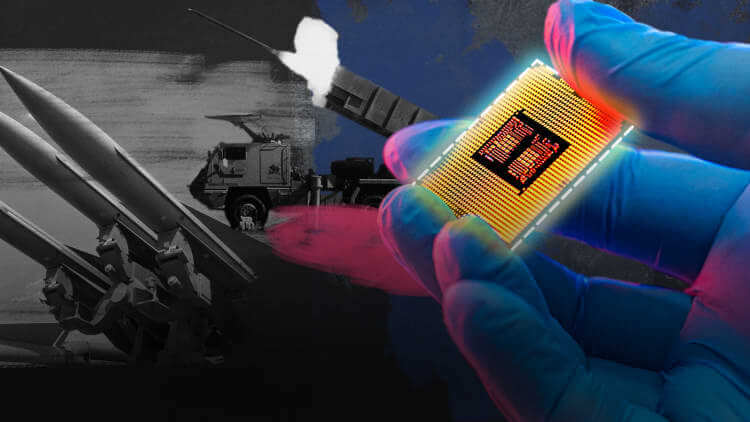Amidst the ongoing geopolitical tensions, a significant revelation has emerged that Western microchips continue to find their way into Russia, bolstering its military capabilities. Detailed analysis of trade data and manifests by CNBC indicates that Moscow has been sourcing an increasing number of semiconductors and advanced technologies from intermediary countries, notably China, despite facing sweeping trade bans from Western nations. The total value of semiconductor technology imports to Russia reached $2.5 billion in 2022, up from $1.8 billion in the previous year. This influx of high-tech components, subject to export controls, has raised concerns about Russia’s ability to stockpile critical military equipment and maintain a robust military arsenal.
The situation is further complicated by the fact that not all advanced technologies are subject to Western sanctions on Russia. Many of these products, known as dual-use items, possess applications in both civilian and military sectors, falling outside the scope of targeted export controls. For instance, a microchip might be utilized in a household appliance like a washing machine as well as in a sophisticated military drone. However, a significant portion of these dual-use items originate from Western nations with sweeping trade bans against Russia, explicitly including its military. For instance, all U.S.-origin items, excluding food and medicine, are strictly prohibited from reaching Russia’s army.
The complex web of global trade routes has played a pivotal role in enabling the flow of Western microchips into Russia. China emerges as the largest exporter of microchips and related technology to Russia, accounting for over 87% of total Russian semiconductor imports in the fourth quarter of 2022. Notably, more than half of these goods were not manufactured in China but were instead produced elsewhere and routed through China and Hong Kong-based intermediaries before reaching Russia. Additionally, Russia has increased imports from countries in the Caucasus, Central Asia, and the Middle East, such as Georgia, Armenia, and Kyrgyzstan, due to their significant trade balance with Russia.
The ubiquity and widespread applications of microelectronics in global supply chains make it challenging to effectively police the movement of these technologies and prevent them from reaching restricted destinations. While Western allies have adopted sanctions to curtail Russia’s military strength, the involvement of intermediary countries complicates matters. Many of these nations, especially those bordering Russia or maintaining substantial trade with Russia, find it difficult to sever certain types of trade due to economic dependencies. As a result, the implementation of secondary sanctions or getting more countries on board with sanctions becomes a pressing concern for Western nations seeking to limit Russia’s military capabilities.
The responsibility to monitor supply chains and prevent goods from falling into the wrong hands ultimately lies with the companies involved. Ensuring compliance with export controls and preventing the diversion of their products to sanctioned destinations is crucial for safeguarding moral values and national security objectives. Engaging companies in efforts to track the movement of their products can significantly reduce the likelihood of these microchips reaching unintended recipients.
The situation of Western microchips finding their way into Russia’s military arsenal despite sanctions highlights the complexity of global trade routes and the challenges in implementing effective controls. The involvement of intermediary countries, notably China, along with the prevalence of dual-use technologies, has allowed Russia to maintain a steady inflow of critical components for its military equipment. Western allies must collaborate to address these trade flow issues and consider additional measures to curb Russia’s military strength. Moreover, companies should play a proactive role in monitoring their supply chains to ensure compliance with export controls and prevent their products from being used in unauthorized ways. Only by implementing comprehensive measures can the international community collectively address the brazen evasion of sanctions and safeguard global security.





